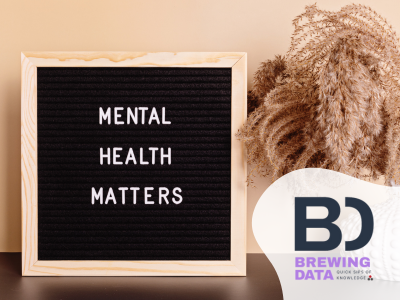The multifamily industry has a vital responsibility in providing housing to millions of Americans, however the demanding nature of the work can negatively affect the mental health of industry professionals.
“It is a challenging industry. Nothing is more personal than dealing with people and their homes.”
The Mental Health Survey Report sought to better understand the specific challenges faced by rental housing workers.
This month’s Brewing Data blog highlights a specific section of the report that covers two important concepts: presenteeism and absenteeism.
- Absenteeism is the habitual or intentional absence from work. It can be caused by various factors such as illness, family emergencies, burnout or low morale. High absenteeism rates can disrupt operations and overall productivity.
- Presenteeism describes the situation where employees are physically present at work, but are not fully functioning due to stress, illness, or any number of other personal issues. Their focus and productivity are markedly diminished, leading to reduced quality of work and weakened team performance.
While companies often worry about absenteeism and its cost repercussions, they often overlook the consequences of presenteeism.
Let’s take an example. An employee with an annual salary of $90,000 or an hourly rate of $43 is experiencing severe distress, and we expect them to miss around 9 hours of work per month. This absenteeism translates to approximately $379 per month for the company.
However, the cost of presenteeism is far greater. Severe distress can lead to a 33% reduction in productivity, which translates to a loss of approximately $2,500.

Many factors can cause presenteeism including workplace culture and workplace structural hurdles such as a lack of paid sick leave. In addition to purely financial costs, I wanted to qualitatively illustrate the repercussions of presenteeism by sharing some of the open responses from the Mental Health Survey.
We asked respondents:
How well do you feel your job aligns with your long-term career goals and personal interests?
“Currently, it doesn’t. I hope once the dust settles, I can focus on what I want to and should be doing”
"There is no alignment. The culture gets more toxic every year while I grow into myself as a person.”
Since the pandemic, do you feel like mental health has gotten better or worse?
“I feel like mental health has suffered. Everyone seems burnt out and just looking for some time to rest and spend time with their loved ones after working through a global pandemic or facing unemployment. It’s weird that we are expected to function how we used to.”
Is there anything else you think we should know?
“We are nothing but a bottom line. We are here for residents and coworkers through all cycles of life and all the owner cares about is getting his incident report, saving money and keeping us out of the news.”
“Before being so quick to write up employees for missing a non-PTO scheduled day of work or for having to abruptly leave their job during the business hours, they should reach out to the employee to clarify if it was an emergency or ask if they were dealing with a mental health issue. Being a person who is actively dealing with my mental health in this industry, job security is the number one thing I worry about, because in the event that I am having a very hard and emotional mental health day, I want to know for sure that if I take a day to get my mental health back on track, I won’t be written up or let go for doing so.”
“I wish more employers would act more on their statements about supporting mental health. Employers talk all the time about how important it is, however, authority figures don’t always show actionable support.”
If you haven’t already done so, I implore you to read the Mental Health Survey Report in its entirety. It delves deeper into presenteeism and absenteeism as well as additional topics including distress levels in specific roles, traumatic experiences, awareness of resources, perception of mental health support, and hopefulness.
.svg)
